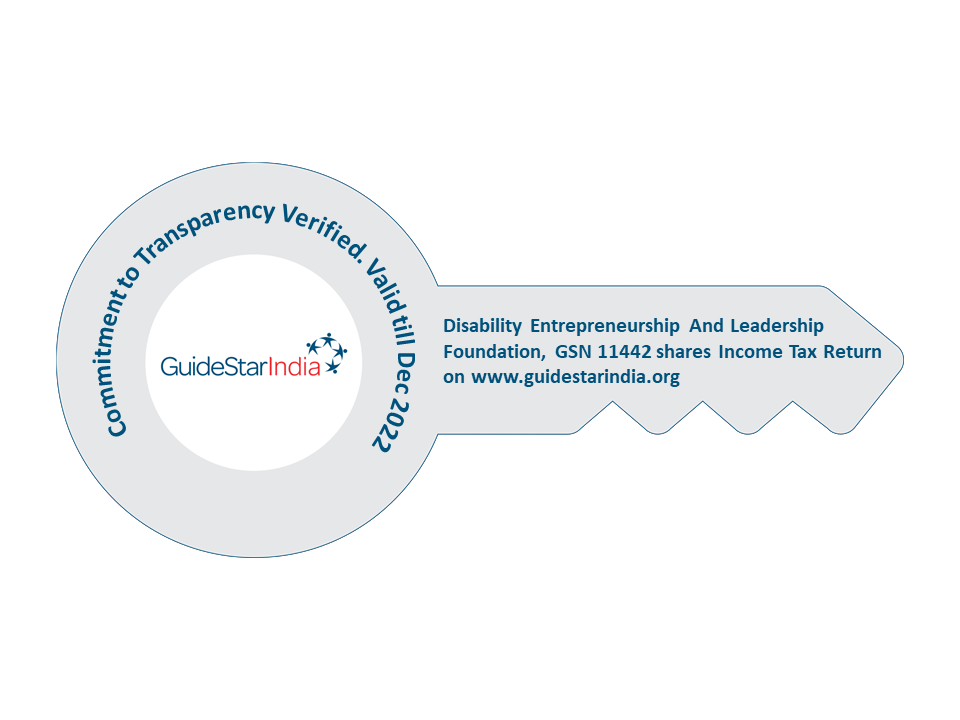‘Every one of us is aware of the popular saying “Today’s children are the citizens of tomorrow”. Therefore we are all called to help these citizens and ensure holistic development of each child. Let’s go through the blog to understand how we can contribute towards this here I would like to focus on the early intervention policies adopted to provide maximum support for children with disabilities.
The birth of a new baby is a time of great hope and opportunity. This sense of hope is reinforced by science, which has significantly enhanced our knowledge about how infants and toddlers develop and the ways we can support them. We know that the early years establish the foundation upon which later learning and development take place. Although babies grow and develop at different rates, most follow a predictable path and learn to walk, talk, and gain new skills in expected ways. For some young children, however, development unfolds according to a slower timetable or in an atypical fashion. For those infants and toddlers with a disability or developmental delay, intervening early can make all the difference in the world. Early intervention provides services and support to promote the best possible developmental outcomes, and enhances the capacity of families to meet their child’s needs. For children at significant risk, early intervention can serve as a protective buffer against the multiple adverse influences that may hinder their developmental progress. If the promise of a bright future is to be realized for all young children, policymakers should permanently authorize and adequately fund Early Intervention.
Steps we should take:
1. Expand and enhance early identification of infants and toddlers to include greater coordination and collaboration among early childhood providers.
2. Health and mental health consultation to child care and collaboration between public health, child welfare and early intervention services to ensure children in the child welfare system are screened. Additional funding should be provided to support increased screening and referral efforts. Infants and toddlers who have been maltreated are six times more likely than the general population to have a developmental delay. Children entering early intervention are far more likely than the general population to be socially excluded.
3. This needs to address infants and toddlers at risk.
4. Expand access to inclusive early care and education experiences for infants and toddlers across diverse settings. Infants, toddlers, and their families thrive when they are able to live, learn, and play in the “natural environments” in their own communities—including the settings in which children without disabilities participate. To ensure inclusive experiences, children with disabilities and developmental delays should have full access to early care and to education, health, social, and recreational services. Successful inclusion requires collaboration at all levels, appropriately trained personnel, cultural responsiveness, and a framework that emphasizes parent-child and peer interactions in typical routines and natural environments.
The new education policy presents a favourable environment within which innovative and responsive early intervention and inclusive education services can evolve. Owing to the specific context and challenges of early education in India, there is a need to develop local capacity through community based rehabilitation service models which can respond to the needs of local communities by people living in them. Where ever possible linkages through referrals with specialist provider should be established.
The Indian portage to early childhood care and development for parents, caregivers, teachers and professionals is both relevant and affordable. It is a child centred and child friendly program. It aims at overall development of the child. It focuses on the parents, their teaching and nurturing skills, to support the family not only in helping the child but also meeting their needs as an early intervention service provider. It is a home based intervention model which carries or transports the information about the child’s development and intervention into the home and family’s natural environment from professional to parents.
Benefits of this training:
• Build on the family and community skills.
• Cost effective and can sustain using local resources.
• Reduction of secondary disabling condition
• Prepares child for inclusion into preschool.
• To assess both disable and non-disabled child.
• Parents care about their children and want them to attain their maximum potential.
• Parents can, with instruction, modelling and reinforcement, learn to be more effective teachers of their own children,
• It focuses on skill training for parents to teach particular activities to children as a teacher at home throughout the week.
Professionals (doctors, psychologists and therapists) too use this as a complementary with other services and therapies. The programme is available through CBR Network and can be delivered across diverse settings.
As part of its work on sustainable livelihoods, DEAL Foundation seeks to roll-out early intervention services for low income families of children with disabilities unable to provide the early intervention special needs support on a full-time basis while they struggle to protect livelihoods.


 Awarded by Guidestar India
Awarded by Guidestar India